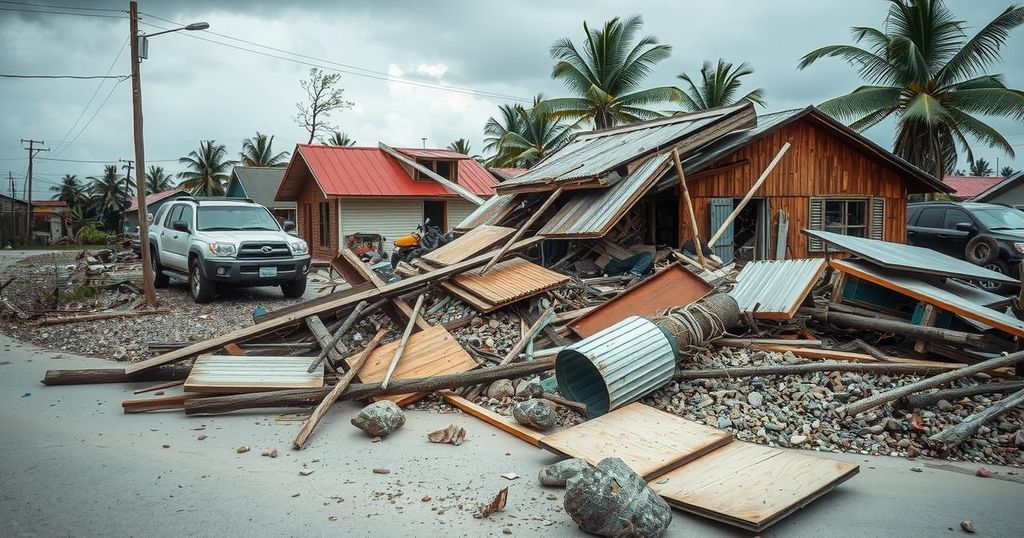Cyclone Chido Causes Widespread Devastation in Mozambique

Cyclone Chido has left at least 34 dead and thousands displaced in Mozambique, causing significant infrastructure damage. While the storm has weakened, heavy rains and strong winds continue to affect the region. Authorities and international organizations are mobilizing aid efforts amidst concerns for the welfare of vulnerable populations, particularly children, as the cyclone moves toward Zimbabwe.
Cyclone Chido has wrought devastation across Mozambique, claiming at least 34 lives and displacing thousands, as reported by the National Institute of Risk and Disaster Management. Making landfall in Cabo Delgado province, the cyclone has caused significant infrastructure damage, including the destruction of homes and roads. Amidst the ongoing emergency, authorities have reported approximately 319 injuries and nearly 23,600 homes, along with 170 fishing boats, damaged by the storm’s powerful winds and heavy rainfall.
While Cyclone Chido has diminished in intensity and is currently classified as a severe storm, authorities continue to issue alerts to the public regarding potential hazards. Luisa Meque, President of the National Institute for Disaster Risk Management and Reduction, emphasized the importance of remaining vigilant and adhering to safety protocols.
The primary impacts of Cyclone Chido have manifested in northern Mozambique, a region that regularly experiences weather-related calamities and is particularly susceptible due to ongoing conflicts and developmental challenges. International organizations, such as the United Nations Children’s Fund (UNICEF) and Save the Children, have expressed grave concerns for the welfare of vulnerable populations, especially children, who are facing disrupted access to essential services.
As the cyclone progresses towards Zimbabwe, further damage is anticipated, particularly regarding rainfall events. The international community, alongside local authorities, is ramping up aid efforts to mitigate the cyclone’s impact and ensure that assistance reaches those in need.
In summary, Cyclone Chido has emerged as a catastrophic event in Mozambique, with severe implications for public safety and infrastructure resilience. Continued efforts are necessary to support affected communities and prepare for any residual impacts as the storm’s remnants move through the southeastern region of Africa.
“Cyclone Chido is a catastrophe for children in the north of the country,” – Save the Children representative Ilaria Manunza.
Cyclone Chido struck Mozambique and Mozambique regularly faces such natural disasters, exacerbated by existing vulnerabilities due to geopolitical and economic conditions. This cyclone has particularly affected regions already burdened by previous conflicts and lacks in development. The circumstances surrounding Cyclone Chido underscore the need for enhanced disaster preparedness and response mechanisms to safeguard local populations. As the cyclone continues its trajectory through southern Africa, attention to humanitarian relief and infrastructure rebuilding remains paramount.
Cyclone Chido has had devastating impacts on Mozambique, causing fatalities, injuries, and extensive property damage. The storm serves as a reminder of the vulnerabilities faced by regions prone to natural disasters, particularly in the context of broader humanitarian needs. As recovery efforts are mobilized, it is crucial to address the needs of the most affected populations, especially children, and ensure that future resilience measures are put in place to better cope with such events.
Original Source: www.rfi.fr






